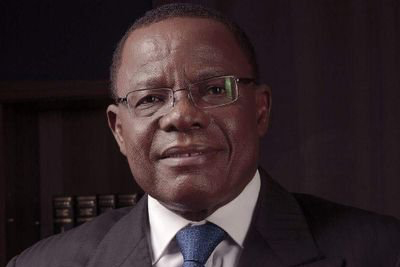
Oct 9, 2019 | News
The ICJ today welcomed the release from detention and the dropping of charges against, of Maurice Kamto and other opposition figures.
The ICJ has called on Cameroonian authorities to ensure that they and others are able to exercise their human rights and fundamental freedoms without harassment or fear of arrest and prosecution.
The ICJ also called for the authorities to embark on wider legal and institutional reforms to facilitate respect for human rights and the rule of law in order to build genuine constitutional democracy in that country.
‘’Neither the arrest, nor detention nor prosecution of people for exercising their fundamental freedoms, including political dissent and peaceful opposition nor the trial of civilians before a military court was in compliance with Cameroon’s international legal obligations,” said Arnold Tsunga, ICJ’s Africa Regional Director in reaction to news of the release.
Maurice Kamto, a leading international jurist, former ICJ Commissioner, and presidential candidate of the Cameroon Renaissance Movement (MRC), was arrested on 28 January 2019 along with dozens of other opposition figures for protesting and challenging the results of the last Presidential elections held in October 2018.
They were facing trials before military courts, in contravention of their rights to a fair trial trial, on charges of ‘’insurrection, hostility to the motherland and rebellion’’ – charges which potentially carry the death penalty.
The detainees were released last weekend after Cameroon’s President Paul Biya’s tweet on 4 October 2019, that he had ordered the discontinuance of proceedings against them. The bringing and dropping charges should be in the remit of independent prosecutorial authorities, not the President.
Nonetheless, the ICJ stressed that the release of Maurice Kamto and the other leaders provides a welcome window of opportunity for Cameroonian authorities to begin an inclusive process of revamping the legal and constitutional framework to meet international standards.
The ICJ called on the Cameroonian authorities to desist further from applying the law and legal process to persecute or otherwise harass any person for the exercise of fundamental freedoms and from administering justice through military courts, which should be reserved for prosecution military personnel for military offences only.
The ICJ stressed that the release of Maurice Kamto and other opposition figures presents a unique opportunity for Cameroonian authorities to restore public confidence in the country’s democratic institutions by including all Cameroonians in the building of a society based on the rule of law.
Contact:
Arnold Tsunga, ICJ Africa Director, C: +27716405926, or +254 746 608 859 E: arnold.tsunga(a)icj.org
Solomon Ebobrah, Senior Legal Adviser, ICJ Africa, C: +234 8034927549; E: Solomon.ebobrah(a)icj.org
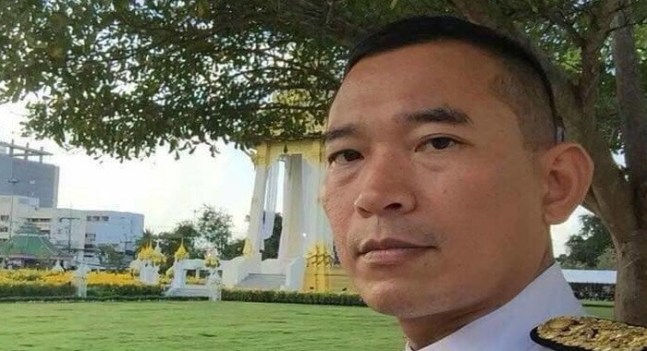
Oct 7, 2019 | News
The apparent suicide attempt of a judge in southern Thailand highlights the need for urgent reform of the judiciary to improve its independence from political interference, the ICJ said today.
Judge Khanakorn Pianchana, Vice Presiding Judge of the Yala Provincial Court in Thailand’s restive southern region, reportedly shot himself in the chest following his delivery of a verdict on 4 October in a case in which he alleged political interference in his judicial functions. Judge Khanakorn is currently hospitalized in critical condition.
“This unfortunate incident again shows the need for sustained reforms of law enforcement and particularly of the independence of the judiciary in Thailand,” said Frederick Rawski, ICJ’s Asia director.
Judge Khanakorn had alleged in a 25-page note that he was ordered in confidence to rewrite his ruling exonerating five suspects of murder charges – a decision he had allegedly reached on the basis of lack of sufficient evidence. The five have had been detained and interrogated under special security laws in force in the Southern Border Provinces of Thailand.
Under Thai law, if a superior judicial officer disagrees with a ruling of any judge, he or she must express such disagreement in writing and is forbidden from speaking to a judge in confidence to reverse the ruling.
“The ICJ has worked for years with the judiciary in southern Thailand to improve the administration of justice, especially by addressing problems such as the improper admission of evidence and problematic evidence-gathering by security forces countering armed groups,” Rawski said. “This case again shows how misuse of emergency decrees in southern Thailand has aggravated the political pressure exerted on judges.”
Today, the case was submitted to the Office of the Judicial Commission for its consideration. The Commission, chaired by the President of the Supreme Court, comprises of qualified members who are judicial officers of each level of the Court. Consequently, the Commission passed a resolution to set up a Sub-Committee comprises three of its members to investigate into the allegations.
Particularly because Judge Khanakorn’s claim involves several senior judges in active services, the Sub-Committee set up by the Commission to investigate the allegations must therefore be independent institutionally and functionally, at all stages of the investigation. Their mandate should be broadened to look into whether there is wider pattern and practice of interference beyond this case.
Background
Judge Khanakorn presided over a trial involving the alleged murder of five people in Yala province in 2018. Following the killing, authorities arrested five suspects who were charged with murder, secret association, conspiracy and gun-related offences. If convicted, three out of five defendants could be sentenced to death.
The five suspects were reportedly detained and interrogated under much-criticized special security laws which remain in force in the Southern Border Provinces of Thailand – i.e Martial Law and Emergency Decree. The ICJ has repeatedly criticized how the Martial Law confers upon military authorities the powers to arrest and detain any person without a warrant for up to seven days for interrogation and questioning and does not require detainees to be brought before a court at any stage of their detention. The ICJ has also repeatedly analyzed and criticized the Emergency Decree, which breaches international law and standards, by allowing authorities to detain suspects, with the leave of the Court, for up to 30 days. The law does not require a detainee to be physically brought before the Court during this period.
Information submitted to the court as evidence in this case had reportedly been obtained from the suspects during detention periods prescribed under Martial Law and the Emergency Decree. Judge Khanakorn noted in his statement that he was of the view that any information obtained during this period should not be admissible because rights protections had not been afforded to the suspects who had been detained under security laws, as they are provided to suspects in other criminal trials. This position had reportedly led to the disagreements between the judge and his supervisor over the case ruling.
The ICJ has repeatedly expressed concern on the use as evidence of information obtained during interrogation under emergency laws in criminal proceedings of security-related cases, in the form of witness statements or inquiry reports from interrogation officials. The ICJ has called on Thailand to review existing standards in all special security laws and relevant articles in the Criminal Procedure Code regarding the admissibility of evidence that are not compatible with international fair trial standards.
Judge Khanakorn also described in his statement that certain evidence needed to have been ruled inadmissible as it had not been collected by competent authorities but by volunteers who were not competent or specialized in evidence collection.
Judge Khanakorn further asserted that interference in his judicial functions had also occurred in 2018 when he had been under pressure to reduce the sentence of three military officers who had been found to have shot villagers to death.
The right to a fair hearing in judicial proceedings before an independent and impartial court or tribunal is guaranteed in several human rights instruments, including the International Covenant on Civil and Political Rights (ICCPR), which Thailand is a party. The right is also enshrined in section 188 of the 2017 Constitution of Thailand.
International standards also reaffirm that judicial independence requires not only the independence of the judiciary as an institution from the other branches of government; it also requires judges being independent from each other. Such freedom from undue influence that might come from other judges is guaranteed in several internationally accepted standards, including Principle 1.4 of the Bangalore Principles of Judicial Conduct and its Commentary; article 3 of the Universal Charter of the Judge; and article 2 of the Basic Principles on the Independence of the Judiciary.
Further reading:
International principles on the independence and accountability of judges, lawyers and prosecutors – Practitioners’ guide, no. 1
Thailand: ICJ co-hosts lawyers’ meeting on admissibility of evidence in the national security context
Thailand : legal memorandum – hearsay evidence and international fair trial standards
Thailand : implementation of Thailand´s emergency decree
Contact:
Frederick Rawski, ICJ Asia-Pacific Director, t: +66 64 478 1121; e: frederick.rawski(a)icj.org
Download:
Thailand-Suicide of Judge-News-2019-THA (Thai version, in PDF)
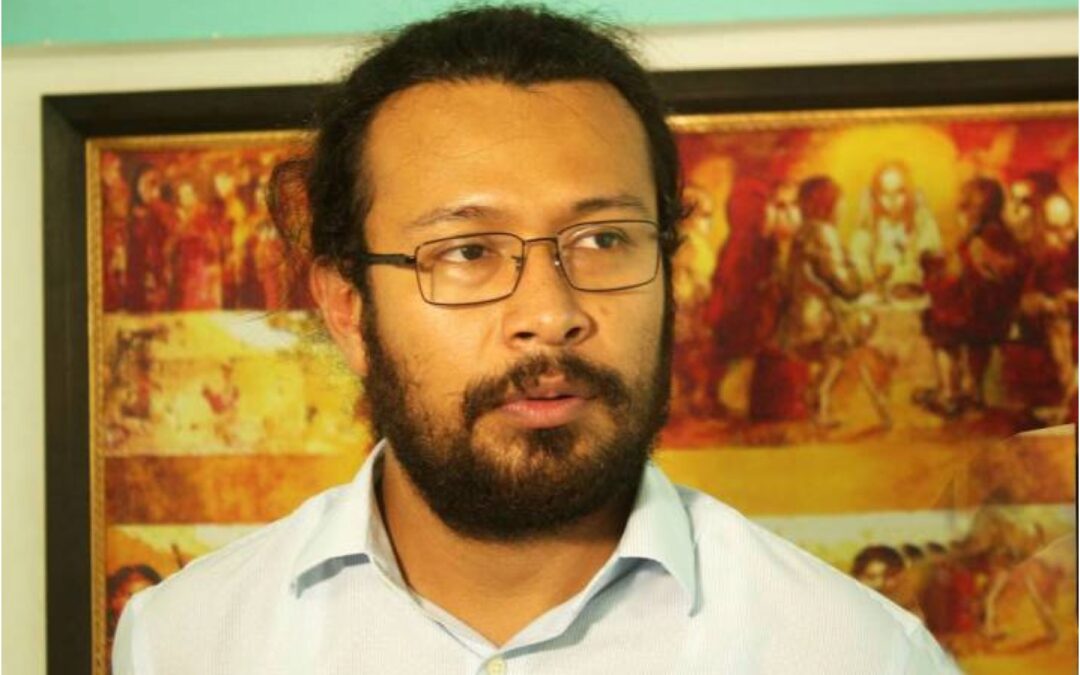
Oct 7, 2019 | Artículos, Noticias
La semana pasada el defensor de derechos humanos Germán Romero Sánchez recibió nuevas amenazas que estarían relacionadas con su labor de abogado defensor de víctimas de graves violaciones a los derechos humanos por parte de agentes estatales
En esta ocasión, las amenazas se realizaron a través de llamadas telefónicas a la residencia del abogado Romero. La primera llamada fue atendida por la compañera del abogado Romero a la cual le dijeron “no te voy a dejar vivo toda la vida, ¿oyo?”. La llamada se produjo minutos después de que el abogado Romero saliera de su casa a llevar a una de sus hijas al colegio.
Esta no es la primera vez que el abogado Romero recibe amenazas por su labor como representante de víctimas y defensor de derechos humanos. Hace menos de un mes, el abogado Romero realizó una denuncia pública dando cuenta de varios hechos de hostigamiento y percusión de los que ha sido víctima él y su familia. Igualmente, en enero de este año, recibió amenazas contra su vida por su labor como abogado defensor de Alfamir Castillo, cuyo hijo fue ejecutado extrajudicialmente por parte de miembros del Ejército Nacional.
El abogado Romero es un reconocido abogado de derechos humanos con más de quince años de experiencia acompañando víctimas de crímenes de Estado. Es uno de los abogados líderes de la organización Asociación Red de Defensores y Defensoras de Derechos Humanos (dhColombia) con la cual la CIJ ha realizado diferentes proyectos en Colombia.
Como lo hizo en oportunidades pasadas, la CIJ vuelve a resaltar la difícil situación de seguridad que atraviesan los defensores de derechos humanos en Colombia. Solo en el año 2018, la Oficina en Colombia de la Alta Comisionada de las Naciones Unidas para los Derechos Humanos reportó el asesinato de 110 personas defensoras de derechos humanos. La CIJ exhorta al Gobierno Nacional y las demás autoridades competentes para que se tomen medidas efectivas que garanticen la seguridad de los defensores de derechos humanos colombianos.
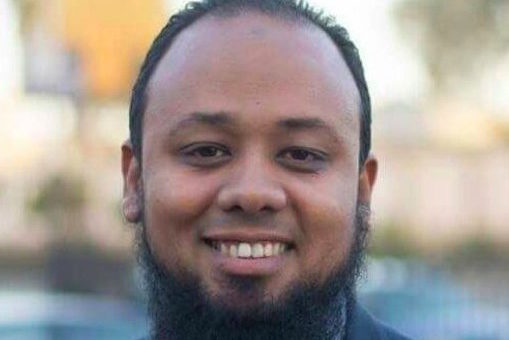
Oct 4, 2019 | News
The ICJ today called on the Egyptian authorities to immediately release all lawyers arrested for discharging their professional functions, and ensure they and other lawyers in the country are allowed to perform their work without threats or intimidation.
The Egyptian authorities have arrested more than 2400 people over the past two weeks following anti-government protests.
Many of the detainees’ lawyers have themselves been arrested, including Mahienour Al-Massry, Sahar Ali, Mohamed Salah Ajaj, Mohamed Al-Baqer (photo), Mohamed Helmy Hamdoun, Ahmed Sarhan, and Ahmed Abd El-Azim.
On 29 September, while representing prominent human rights defender Alaa Abdelafttah during questioning before the State Security Prosecution, lawyer Mohamed Al-Baqer was arrested and charged with, among other charges, “spreading false information aiming at disturbing the public and peaceful order” and “joining a terrorist organization.”
The ICJ has previously documented how lawyer Mahienour Al-Massry was arrested under similar circumstances, and called for her immediate release.
Mahienour was also charged with “spreading false information” and “joining a terrorist organization.”
“By arresting lawyers and prosecuting them on trumped-charges, the Egyptian military is dismantling the very last line of defense against its ruthless crackdown on human rights and fundamental freedoms, and silencing the very same voices that can still witness, challenge and report on its industrial-scale human rights abuses,” said Said Benarbia, ICJ MENA Director.
Under international standards reflecting core rule of law principles, lawyers must be able to discharge their professional functions without hindrance, harassment or improper interference.
They shall not suffer, or be threatened with prosecutions for any action taken in accordance with their professional duties.
The ICJ emphasized that these standards are there not only for the interests of the lawyers and those they represent or might in the future represent, but also to ensure that the rule of law remains operative for the society as a whole.
The Egyptian authorities must conform to these standards, refrain from its attacks against the legal profession, and immediately release all lawyers and other individuals arbitrarily detained.
Contact:
Said Benarbia, Director of the ICJ Middle East and North Africa Programme, t: +41-22-979-3817; e: said.benarbia(a)icj.org
Egypt-Attacks on Lawyers-News-web stories-2019-ARA (story in Arabic, PDF)
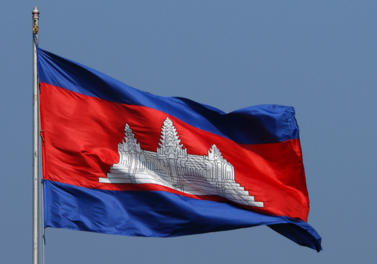
Oct 4, 2019 | News
Today, the ICJ and 36 other civil society organizations called on the Government of Cambodia to drop charges against former Radio Free Asia (RFA) journalists Yeang Sothearin and Uon Chhin, who are being tried on spurious charges for multiple offences in connection with carrying out their journalist functions.
This comes after the latest hearing in the case yesterday by the Phnom Penh Municipal Court, where it postponed delivery of its verdict for a second time. The Court has now ordered that the case be returned to a new investigating judge for a reinvestigation.
The case is emblematic of a pattern of instances where journalists, human rights defenders, community activists, members of the political opposition and others have been subjected to intimidation and harassment for exercising their fundamental freedoms through misuse of laws and the judicial system.
The ICJ and other organizations have called for a cessation of this practice and urged the government to comply with their obligations under international law to protect these freedoms.
The trial of the two journalists which concluded on 9 August, had initially been expected to result in a verdict on 30 August, before it was postponed until yesterday’s hearing, when it was again postponed.
“These charges should have never been brought against Yeang Sothearin or Uon Chhin – They were brought with the sole purpose of silencing their work as journalists and chilling other independent voices in the country from speaking,” said Frederick Rawski, ICJ’s Asia and Pacific Regional Director.
The ICJ has stressed that the case against journalists does not comply with Cambodia’s international legal obligations to respect the right to liberty and to a fair trial.
“Given the arbitrary legal bases upon which the journalists have been charged and tried, the prolonging of their case prolongs this harassment and additionally violates their right to be tried without undue delay,” said Rawski.
In November 2017, Yeang Sothearin and Uon Chhin were arrested and detained in Prey Sar prison before they were provisionally charged with “supplying a foreign state with information prejudicial to national defence” under Article 445 of Cambodia’s Criminal Code. In March 2018, they were further charged with alleged production of pornography under Articles 38 and 39 of the Law on the Suppression of Human Trafficking and Sexual Exploitation.
Both men face up to 16 years in prison. They are currently under judicial supervision, following their release on bail after being held in pre-trial detention for more than nine months.
The journalists were arrested following the shutdown of RFA’s Cambodia bureau in the midst of a sharp deterioration in the situation for human rights and the rule of law in Cambodia prior to the 2018 national elections.
In September 2017, in a statement to the UN Human Rights Council, the ICJ had highlighted that civil society, independent media and the political opposition were under sustained attack in a “carefully orchestrated effort to silence dissenting voices in the lead up to national elections” and that laws were “being weaponized to this end”.
In October 2017, the ICJ in a report on the human rights situation similarly warned that the government was “relying on judges and prosecutors who lack independence to silence dissent and dismantle democracy” through “an endemic system of political interference in high-profile cases and an equally entrenched system of corruption in all others”.
Following the national elections, this trend has only worsened.
In August and September 2019, the ICJ and other organizations highlighted the “ongoing human rights crisis” in Cambodia and called for strengthened scrutiny at the Human Rights Council of the human rights situation in the country.
Download
Cambodia-charges against journalist-news-webstory-2019-ENG (full story in PDF)
Link to Joint Statement available here.
Contact
Frederick Rawski, ICJ Asia and Pacific Regional Director, frederick.rawski(a)icj.org









